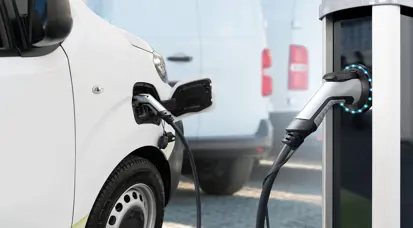What is the UK Electric Car Grant 2025?
The electric car grant is a £650 million government scheme launched on 16 July 2025 to support the transition to zero emission vehicles and incentivise sustainable automotive manufacturing. This represents the UK's most significant electric vehicle incentive since the original Plug-in Car Grant ended in June 2022.
The scheme operates on a two-tier system based on sustainability criteria:
-
Band 1 (£3,750 grant): For the most sustainably produced cars with the lowest carbon emission scores
-
Band 2 (£1,500 grant): For cars that meet some environmental criteria

Key Features of the Electric Car Grant:
-
No paperwork required: The discount is automatically applied in the purchase of the vehicle and customers do not need to complete any paperwork
-
Price cap: Only electric vehicles priced at or under £37,000 qualify
-
Funding timeline: The scheme has funding available until financial year 2028 to 2029
-
Manufacturing standards: Eligibility is dependent on the highest manufacturing sustainability standards
Which Electric Cars are Eligbile for the Grant?
There are 24 new models eligible for the Electric Car Grant scheme, with more due to be announced soon. Here's the current list of eligible vehicles:
Currently Approved Models (£1,500 Grant):
|
Citroën |
ë-C3, ë-C3 Aircross, ë-C3 Urban Range, ë–C4, ë-Berlingo and the ë-SpaceTourer |
|
Cupra |
Including the Cupra Born |
|
Nissan |
Including Nissan Micra and Ariya |
|
Peugeot |
Peugeot E-208, E-2008, E-308, E-408, E-Rifter and E-Traveller |
|
Renault |
Including Renault 5 (40kWh), Megane and Scenic |
|
Skoda |
Including Elroq and Enyaq |
|
Toyota |
Proace City Verso |
|
Vauxhall |
Electric models including the Vauxhall Astra, Corsa, Frontera, Grandland, Mokka and Vivaro Life |
|
Volkswagen |
Including the Volkswagen ID.3, ID.4 and ID.5 |
Most of the models announced so far have received the lower discount of £1,500, but certain cars are expected to be eligible for the maximum £3,750 grant amount.
Currently Approved Models (£3,750 Grant):
|
Citroën |
ë-C5 Aircross |
|
Ford |
Puma Gen-E and the Ford E-Tourneo Courier |
|
Mini |
Countryman Electric |
|
Nissan |
LEAF |
|
Renault |
Renault 4, 5 (52kWh), Alpine A290 |

Notable Exclusions:
Cars hailing from China are unlikely to qualify for the ECG due to the scheme's lifecycle carbon cost approach that penalises vehicles or batteries assembled in countries deemed to have an electricity grid with 'high' levels of carbon emissions per kW. This affects Chinese electric cars significantly.
Why do so few Vehicles Qualify for the £3,750 EV Grant?
- Strict Science-Based Targets: Vehicle manufacturers must evidence that the company producing the vehicle holds a Science Based Target that has been verified by the Science Based Target Initiative
- Production Emissions Assessment: The amount of grant available per vehicle will depend on the level of emissions associated with production of the vehicle. Emissions from vehicle production are assessed against the carbon intensity of the electricity grid in the country where vehicle assembly and battery production are located
- Supply Chain Requirements: Band One classification (£3,750 grant) requires full SBT validation plus additional criteria including renewable energy usage above 80%
The EV market is responding by manufacturers lowering prices independently, with brands like Volvo, Fiat, Hyundai, and MG offering their own discounts.
How the Electric Car Grant Works
-
Choose an eligible vehicle priced under £37,000
-
Ask Yorkshire Fleet for a lease quotation - the discount applies automatically
-
No application needed - manufacturers handle all paperwork
-
Immediate savings - discount applied at point of sale which means lower lease costs
Combining EV Grants with Salary Sacrifice
The Electric Car Grant works perfectly alongside Yorkshire Fleet's electric car salary sacrifice scheme, creating unprecedented savings opportunities.
Example Savings Calculation:
-
Car price: £35,000 (pre-grant)
-
Grant discount: £1,500
-
Net price: £33,500
-
Salary sacrifice savings: 20-50% (with 3% BiK rate)
Previous EV Grants (no longer available)
The Plug-in Car Grant (2011-2022)
The original scheme offered up to £1,500 off electric vehicles and supported nearly half a million EVs over its decade-long run. In June 2022 it unfortunately ended as the government shifted focus to charging infrastructure.
Electric Vehicle Homecharge Scheme (2014-2022)
It was designed to give funding up to £350 on the cost of installing EV charging devices at domestic properties across the UK. 340,222 domestic charging devices were installed under the EVHS, with a grant total of £140.8 million.
This was replaced by the EV Chargepoint Grant, available only to flats and rental properties.
Additional EV Support Available in 2025
Charging Infrastructure Investment:
The government announced a £63 million investment package to supercharge Britain's electric vehicle infrastructure, including £25 million for local authorities to expand access to cheaper at-home charging.

Commercial Vehicle Grants:
The Plug-in van grant has been extended for another year, offering up to £2,500 for small vans and up to £5,000 for larger vans up to 4.25 tonnes.
Workplace Charging Support:
Employers can access funding through the Workplace Charging Scheme to install charging points for employees.
Charging Solutions:
Yorkshire Fleet have partnered with the UK's leading electric car charger provider Pod Point, to provide hassle-free domestic & commercial charging solutions.
How To Maximise Your EV Savings
-
Choose grant-eligible vehicles under £37,000 from our eligible cars list
-
Consider salary sacrifice for 20-50% additional savings
-
Take advantage of low BIK (Benefit in Kind) rates (currently 3% for 2025/26)
-
Factor in running cost savings of up to £1,500 annually
-
Explore workplace benefits through your employer
- Explore our used electric car options for additional affordability.
What this means for UK Drivers
The Electric Car Grant represents a significant step towards making electric vehicles more accessible. While the full £3,750 grant remains elusive due to strict sustainability criteria, the £1,500 discount available on approved models, combined with salary sacrifice schemes, makes electric vehicle ownership more affordable than ever.
With over 382,000 electric cars sold in 2024 – up a fifth on the previous year – there's never been a better time to switch to EVs.
The combination of government grants and salary sacrifice schemes creates an unprecedented opportunity for UK drivers to access premium electric vehicles at affordable rates, supporting the transition to sustainable transport while delivering significant personal savings.
